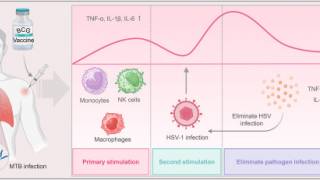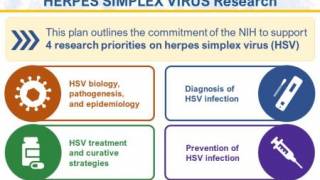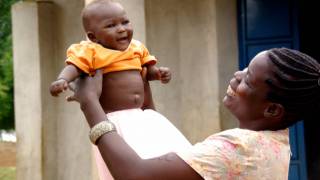HSV Treatment Readies for Approval

A recently published Original Article reported positive news regarding the First-in-Human clinical trials assessing Pritelivir, a Nonnucleoside Helicase-Primase Inhibitor targeting the Herpes Simplex Virus (HSV).
As an active ingredient in a new chemical class (thiazolylamides), Pritelivir is active against both types of herpes, HSV-1 and HSV-2.
Published on March 1, 2023, a peer-reviewed study disclosed Pritelivir was evaluated in five phase 1 trials, a single-ascending-dose trial, two multiple-ascending-dose trials, and others.
Pritelivir pharmacokinetics were found linear up to 480 mg following single and up to 400 mg following multiple once-daily doses.
The half-life ranged from 52 to 83 hours, and steady-state was reached between 8 and 13 days.
Maximum plasma concentration and area under the plasma concentration–time curve from time 0 to the last quantifiable concentration were 1.5- and 1.1-fold higher in female compared to male subjects.
Absolute bioavailability was 72% under fasted conditions.
Following a fatty diet, Pritelivir time to maximum concentration was 1.5 hours delayed, and maximum plasma concentration and area under the plasma concentration–time curve from time 0 to the last quantifiable concentration were 33% and 16% higher, respectively.
Pritelivir was found safe and well tolerated, up to 600 mg following single and up to 200 mg following multiple once-daily doses.
Considering a therapeutic dose of 100 mg once daily, Pritelivir demonstrated a favorable safety, tolerability, and pharmacokinetic profile in healthy subjects to support further development.
Based on these positive results, AiCuris form the basis for regulatory approval.
Previously, Germany-based AiCuris received U.S. Food and Drug Administration (FDA) Breakthrough Therapy Designation in June 2020 to treat mucocutaneous HSV infection in immunocompromised patients.
This update is essential, as there are no FDA-approved herpes vaccines available. However, there are two mRNA-based vaccine candidates.
HSV treatments and preventive vaccines are in great demand.
According to the World Health Organization, an estimated 491 million people aged 15-49 years, or 13% of the world's population, live with genital herpes caused by HSV-2 infection.
While HSV-1 mainly causes lesions in the mouth area, HSV-2 manifests itself in the genital region and is usually transmitted sexually.
And in immunocompromised patients, HSV infection can lead to serious complications.
Disclosures: AiCuris Anti-infective Cures AG, a spin-off from Bayer AG, employed researchers during the trials and continued on a supervisory board.
Our Trust Standards: Medical Advisory Committee























